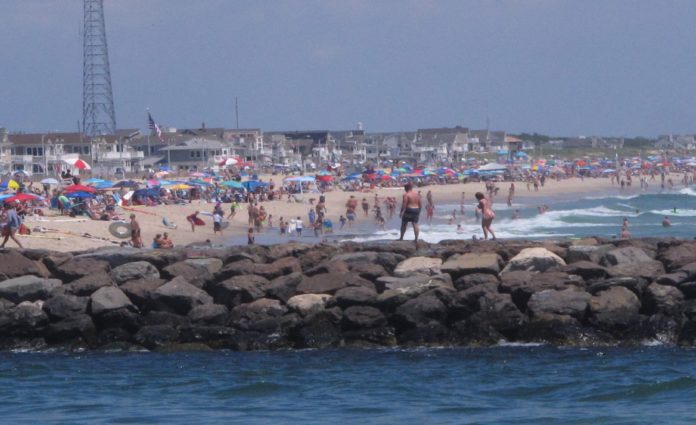New Delhi (NVI): Last month was the third hottest July ever recorded according to a new data by the Copernicus Climate Change Service which reveals that climate change could double the area of central Europe affected by severe drought by the second half of the century.
This isn’t the result of a one-off heatwave or freak weather front, but part of an alarming trend that has seen three of the hottest July months ever recorded – peaking in 2016, followed by 2019 – occurring within the past five years, according to a report by World Economic Forum (WEF).
Humans could face a future that’s too hot to survive without air conditioning. Exposure to extreme heat can stress the body to the point where organs shut down, presenting potentially life threatening conditions for many people living in developing countries.
But hot weather is only part of the climate crisis story.
Warming temperatures make extreme weather events, such as floods, storms and droughts, both more likely and potentially more intense.
Increasing temperatures could make extreme droughts as much as seven times more likely, according to new research. This means the area of cropland affected by extreme drought across central Europe could double in the second half of this century, to more than 40 million hectares (approximately 4,00,000 square kilometres).
Using precipitation and temperature data from records from as far back as 1766 to inform climate change computer models, researchers from the UFZ-Helmholtz Centre for Environmental Research in the German city of Leipzig forecast that moderate reductions in greenhouse gas emissions could reduce the drought-affected area of central Europe by 40 per cent.
However, for the icy wilds of remote northern Canada, the threat of droughts isn’t a consideration, but the region is no less affected by climate change.
At the periphery of Ellesmere Island sits the Milne Ice Shelf, the last fully intact ice shelf in the Canadian Arctic. July’s extreme heat caused two-fifths of this natural wonder to break up in just two days, according to media reports.
Extreme July temperatures have hit the entire Arctic region, which scientists say is warming more than twice as fast as the rest of the planet. The 2020 summer melt produced the lowest recorded ice cover for the month of July since records began in 1981.
While the impact of global warming is clear to see, it’s not too late to curb emissions and tackle the climate crisis, but urgent action is needed to accelerate the journey toward net zero emissions.
-CHK







